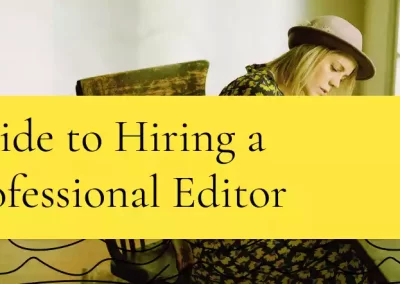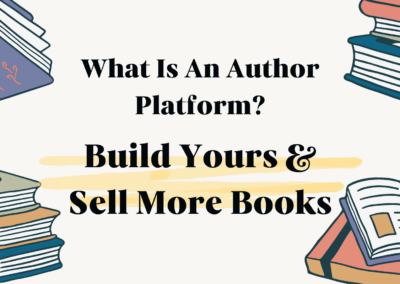Submitting a manuscript to a book publisher usually requires the inclusion of a synopsis and a query letter, a.k.a. cover letter. While writing a summary is pretty straightforward, a query letter can be slightly trickier. Don’t underestimate its importance!
Before you write your query letter, research the publishing house you want to submit to. What are their submission guidelines? Do they have certain requirements? Is your genre one they accept? If everything fits like a puzzle, then it’s time to get writing – again.
Keep your query letter short. Aim for three to five paragraphs that fit on a single page. And think about your query letter in five parts.
Query Letter Part One: The Introduction
Don’t start it with, “To Whom it May Concern,” no matter how tempting (or easy) that may seem. Instead, take the time to personalize it. Mention the name of the person you’re sending it to or at least the name of the company. After you make that more personal connection publisher, talk about your manuscript. Include the title, word count, and genre to inform the publishers where your work fits.
Query Letter Part Two: The Sound Bite
The sound bite! Now, what exactly is a sound bite? The sound bite is an interesting clip from your story designed to hook the reader. It is not a summary or a synopsis. The sound bite is supposed to attract the agent/publisher and make him or her want to learn more about your story. Have this be a hook to draw the publisher to your manuscript. It can be a simple sentence or even a question.
You might include a synopsis after your sound bite, but it’s not always recommended since that can be sent as another file. Here are a few things that are needed if you do include it in your query. The summary is where you really start to sell your book. Make sure to have a nice hook in this part as well – whether it is in your query letter or not. It needs to be about 100-200 words. Also, be sure to not include the ending of you novel! You want the publishers to be intrigued and want to know more about your book.
Query Letter Part Three:
Now, what exactly is a sound bite? It’s an interesting clip from your manuscript designed to hook the reader. It is not a summary or a synopsis. The sound bite is designed to attract an agent or publisher and make them want to learn more about your story. This hook can be a simple sentence or even a question.
You might include a synopsis after your sound bite, but it’s not always recommended. A synopsis can usually be sent as a separate file.
If you do include it in your query, aim for 100-200 words and make sure it has a hook whether a hook appears in your query letter or not. If you are submitting fiction, don’t give away the ending. Instead, intrigue publishers so they’ll want to learn more.
Query Letter Part Three: Author Bio
In a query letter, an author bio shouldn’t be longer than a sentence or two unless you have a lot of relevant experience under your belt. Include previously published works, related writing experience, awards, and the like. Only include information that pertains to your manuscript in some way. So that pet goldfish you owned for twelve years doesn’t warrant a mention. However, if your book involves psychology, and you have a doctorate in psychology, be sure to mention your degree and where you got it from – just the basics.
Query Letter Part Four: In Closing
End your letter with a quick thank you. Keep it short and sweet.
A few more tips for your overall query letter:
- Make your letter easy to skim through. Publishers receive hundreds of letters a day. Long letters make them groan. They won’t want to read the whole thing, nor will they have the time to do so. Use short sentences and paragraphs so it is easy to digest.
- Use the same tone found in your manuscript to write your query letter. If your manuscript is funny, use some humor. If it’s old-fashioned, throw in popular words and phrases from the time period you have in mind. Doing so will give publishers a sense of your voice.
- A reminder: don’t be wordy. You have only one page to work with, so make it count.
Keep these tips in mind when you’re ready to submit your query letter. And take a look the submissions page for Indigo River Publishing to learn about our submission guidelines. Make sure to read it!





